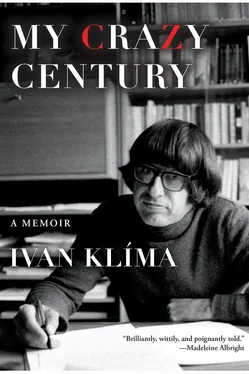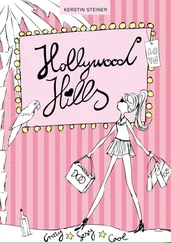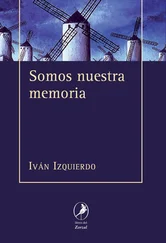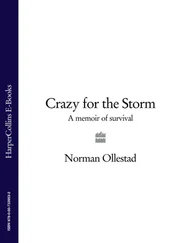The next morning I took my entire month’s pay from an envelope and in a state of extreme nervousness set off for the train station, where I arrived a half hour early. The train was just pulling in, and I managed to be the first one on and got two seats by a window in the last car. Then time dragged along unbearably as I waited for Tatyana. Three minutes before departure, I saw her running toward the train smiling, well rested, and toting a small overnight bag.
The train wheezed along in a cloud of its own smoke, and we sat across from each other with our knees touching. I realized we had two whole days ahead of us, which might decide our future. But it didn’t seem appropriate to talk about it. We chatted about other, more abstract topics. What was beauty? To what degree did it depend on the time period, on social conditions? Did art have a duty to educate?
When we finally disembarked at the Domažlice railway station, she asked me where we were going, where I had reserved a room.
I hadn’t reserved anything. It hadn’t even occurred to me. I reassured her, however, that the organizers of the conference had surely taken care of our accommodations.
She was doubtful, especially concerning her own accommodations.
In the end, we discovered that they hadn’t even taken care of mine. The hotel on the square was full. The receptionist explained to me that some sort of literary conference was supposed to be going on and advised me to inquire elsewhere. We wandered for at least two hours through town. On top of everything, it started to rain.
The idea of spending our first night together on a bench somewhere in the train station waiting room was certainly not encouraging. I realized with relief, however, that it would postpone the fateful moment of decision. Tatyana obviously did not share my feelings of relief. Her good mood had passed, and she remained stubbornly silent. As we blundered through the streets and alleys, soaked to the skin, a small sign attracted my attention: The building we had just passed housed the chapel of the Czech Brethren Church. The first-floor light was on, so I rang.
The pastor was young and looked the way people do when a complete stranger knocks at their door. I told him I was a member of the Vinohrady congregation and that I was very sorry to bother him, but my colleague and I (I wasn’t lying; she was after all my colleague) had arrived for a literary conference, and we couldn’t find lodging. He was our last hope.
He nodded that he understood. We were welcome. They had a room for guests, and of course we could spend the night. I gazed proudly at my bewildered companion. I hoped she appreciated my ability to find a solution to a difficult situation.
The pastor let us in and asked about my congregation. He’d gone to college with our pastor but hadn’t seen him for a long time. Then his wife entered and offered us bread, butter, and tea.
She also told us that the room was ready for the young lady and asked if I would mind sleeping on the sofa in the office. The church rectory was not going to be an appropriate sanctuary for an amorous rendezvous. So I wished my sweetheart a good night without even kissing her and went off to a room full of religious tracts. Above my head was a portrait of Jan Amos Komenský, and on the opposite wall a reproduction of Jan Hus at the Council of Constance.
On a chair beside the sofa lay a Bible.
In the end, the conference was boring, and I noticed with a feeling of desperation the disapproval of the one person who mattered to me.
On the trip back in the train I nearly tied myself into knots trying to be amusing or at least create interesting conversation. My beloved Tatyana smiled at me now and then — with sadness, sorrow, and perhaps even understanding.
I realized that Tomáš would have reserved a room and certainly would not have dragged her to a rectory where even a good night kiss was improper.
Essay: Abused Youth, p. 452
A letter arrived from the legal advisory office in Uherské Hradiště. A certain Attorney S. informed us that he had been assigned the case of the engineer V. Klíma, which would be taken up on June 24. He had good news: Paragraph 135 (endangerment of the economic plan), according to which the accused was to be mandated, allowed for a punishment of only three months to three years. But he thought that in view of the current situation the maximum penalty would not be applied. Furthermore, the case would probably not be made public. The reading of the verdict, however, would be public and visitors would be allowed.
Mother burst out crying because she still believed that Father, who could not have done anything wrong, would one day be deemed innocent and released, whereas now he would be placed before the court like a common criminal.
My brother was intrigued by the word “situation.” The verdict couldn’t depend on some sort of situation, could it?
There were only three days until the hearing. Mother asked us if she should go to the court and immediately added that the trip there along with the trial would probably kill her. My brother offered to go, but Mother objected that he had to go to school, and if he did in fact attend the trial, he would most likely say something inappropriate because when he was angry he couldn’t control himself. It would be best if I went because I was levelheaded and didn’t start jabbering the first thing that came into my mind. So I left for Uherské Hradiště, a place where I’d never been and where I knew no one.
Father’s attorney was so unprepossessing that nothing about him stuck in my memory except his small, gold-rimmed glasses. But these belonged merely to his external appearance, just like his gray jacket. He suggested we go to a café, where he said he had a table. He then offered me a cigarette (which I refused), addressed me as “my dear boy,” and informed me that the prosecution, as he’d learned from the documents, was apparently trying to prove that my father had committed sabotage. As I was surely aware, certain changes of a general nature had occurred, and now, although he didn’t want to promise anything, it looked as if he might be able to ask for an acquittal. He assured me he would do everything in his power, even though as I was certainly aware. .
I said I had no idea what he was talking about.
These days, he explained, a lawyer could do less than— He looked around to see if anyone was sitting at the neighboring tables and said in almost a whisper, “A lawyer can accomplish less than a cleaning lady from the district committee.”
When I entered the dreary courtroom, where the only décor was the state symbol and a picture of President Zápotocký, I felt a weight descend upon me.
The court entered, then five uniformed hulks brought in Father and four other accused. Father seemed the smallest. He was extremely pale but not unrecognizably emaciated the way he was when we first saw him after being liberated from the concentration camps.
He saw me sitting there, forced a weak smile, and acknowledged me with just a nod because he was handcuffed.
I was so flustered when I saw Father sitting on the bench of the accused that I nearly couldn’t follow the prosecutor’s speech. He spoke without any zeal, as if he were trying to put the court to sleep as quickly as possible. Then we were ordered from the room.
The next day toward evening I was let into the courtroom to hear the verdict.
“The defendant Klíma,” announced the judge, who didn’t bother with Father’s academic title, “in his capacity as the director of the national enterprise MEZ Development, which he held from August 1, 1947, to June 30, 1951, did not see to proper labor organization. Furthermore,” he continued, “he did not devote the proper care to the training of personnel, tolerated criticism of his work with difficulty, and systematically did not cooperate with the manufacturing plant even though he knew the machines he had designed could be built only by personnel who were both professionally and politically adept.”
Читать дальше












